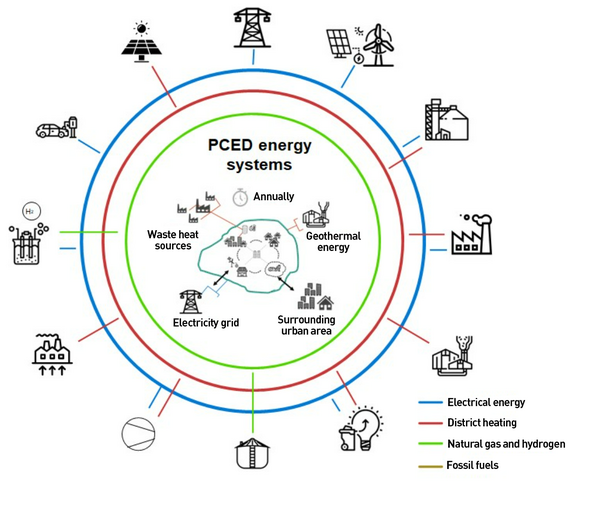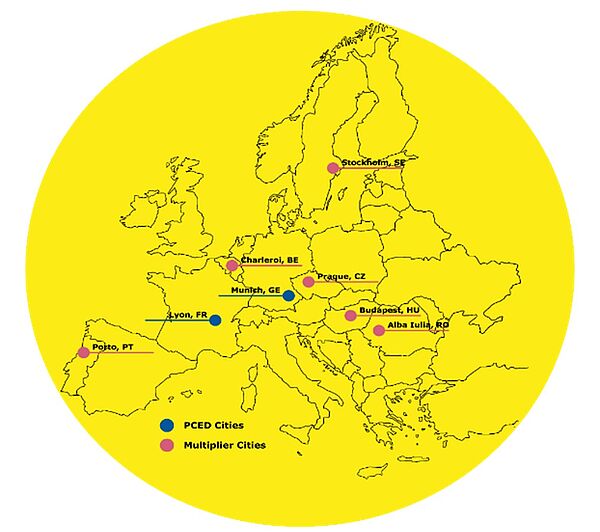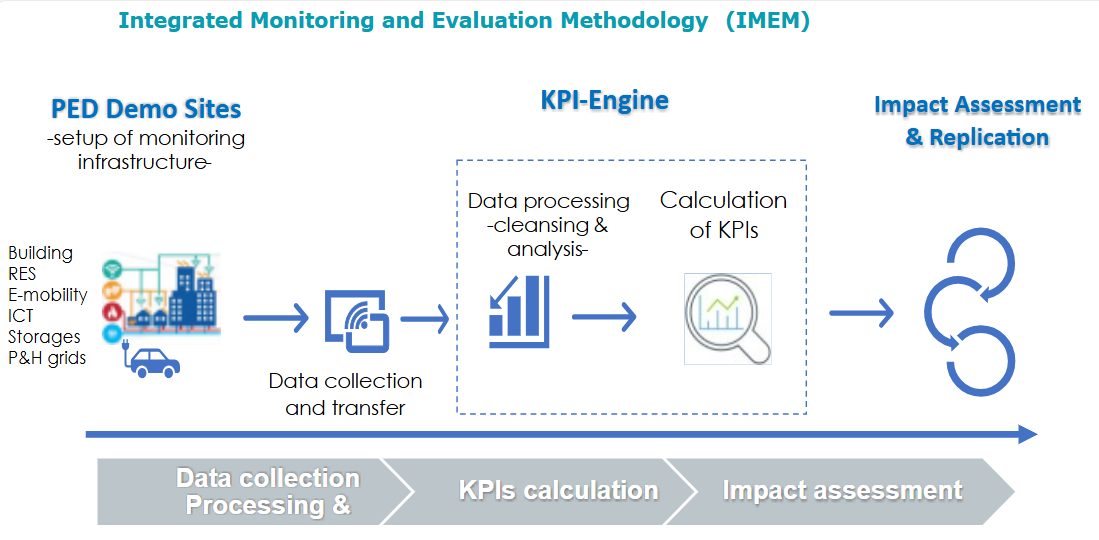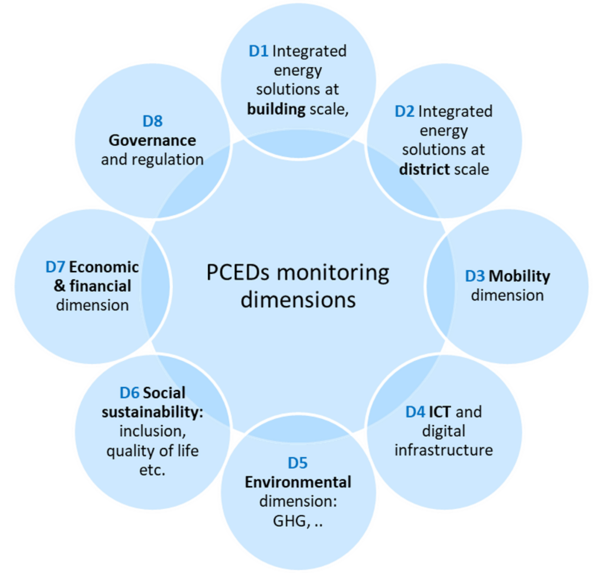Project ASCEND
ASCEND is a Horizon Europe project designed to accelerate the deployment of PCEDs as a key enabler for transforming European cities toward climate neutrality. PCEDs are urban districts or neighborhoods that, through an integrated energy concept, produce more clean, renewable energy than they consume. In this context, two inclusive, sustainable, and affordable PCEDs are being evaluated in the Lighthouse Cities (LHCs) of Lyon and Munich.
Solution packages for the comprehensive implementation of PCEDs
The evaluation consists of six standardized, scalable, and well-tested solution packages (SPs). These are demonstrated on a large scale and tailored to the local context to enable cost-effective implementation of PCEDs.
Each SPs integrate multiple technologies and concepts, encompassing technical, financial, social, environmental, governance, and regulatory aspects around PCEDs. The considered SPs include:
SP1: digital infrastructure & ICT
SP2: deployment of energy communities and prosumer services
SP3: deployment of energy-efficient buildings and integrating RES and related flexibilization options for PCED energy system.
SP4: sustainable urban mobility of decarbonised mobility and freight transport.
SP5: co-created and citizen-centred solutions
SP6: urban orchestrator – a governance body gathering key local stakeholders – to coordinate the PCED implementation and ensure its long-term performance.
Furthermore, six multiplier cities (MCs) – Alba Iulia, Budapest, Charleroi, Prague, Porto, Stockholm – will actively test and implement selected SPs – demonstrated in the LHCs – and thus bootstrapping the implementation of their PCEDs already during the project lifetime, contributing to magnifying the project impact and fostering wider adoption and scaling of proven solutions across Europe.
ASCEND as a test environment for PCEDs
The aim of the ASCEND project is to develop replicable, sustainable PCEDs to accelerate the transition to climate-neutral cities. To achieve this goal, ASCEND serves as a test environment in which the implementation of PCEDs is demonstrated in two lighthouse cities and the performance of neighborhood-based solutions and the overall project impact are systematically monitored and evaluated.
Key project objectives
Develop and implement two inclusive, cost-effective PCEDs in the lighthouse cities of Lyon and Munich, serving as scalable reference models..
Facilitate the early-stage deployment of PCEDs in six multiplier cities—Alba Iulia (RO), Budapest (HU), Charleroi (BE), Prague (CZ), Porto (PT), and Stockholm (SE)—to accelerate replication and upscaling.
Scale-up six standardized SPs for a large community of cities and investors across Europe.
Systematically disseminate empirical findings and best practices to the smart cities community, fostering knowledge transfer and policy alignment for climate-neutral urban transformation
Role of AIT
The AIT Austrian Institute of Technology is leading the monitoring, evaluation, and impact assessment efforts while also contributing to the implementation of solution packages related to energy, buildings, mobility, and ICT at the district demo sites. To support this, the AIT team has developed an Integrated Monitoring and Evaluation Methodology (IMEM), which provides a structured framework for KPI-based monitoring, evaluation, and impact assessment of the implemented SPs. The collected data is submitted to a KPI engine—an ICT infrastructure developed by project partner DKSR—for further processing, analysis, KPI calculation, and visualisation.
KPI-based evaluation of lighthouse cities
A set of 32 Core KPIs, spanning eight dimensions, was developed through an extensive co-creation process involving stakeholders from both LHCs and other project partners. These dimensions encompass energy performance at both building and district scales, urban mobility, ICT, environmental, socio-economic, and governance aspects. The core KPIs, agreed upon with the LHCs, serve as the focal point of monitoring and evaluating the performance of the demo PCEDs in both LHCs. To support the monitoring and evaluation process, ASCEND plans to conduct surveys at the demo PCEDs in Lyon and Munich. These surveys will provide complementary qualitative and quantitative data for the KPI calculations related to the Mobility and Social dimensions.
![[Translate to English:] Smart and Carbon-Neutral Urban Development Symbolfoto: Das AIT ist Österreichs größte außeruniversitäre Forschungseinrichtung](/fileadmin/_processed_/a/d/csm_Thermalkataster_Hotspots_7969d57e54.jpg)









